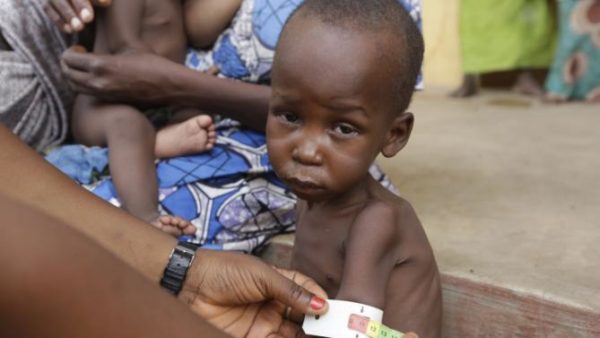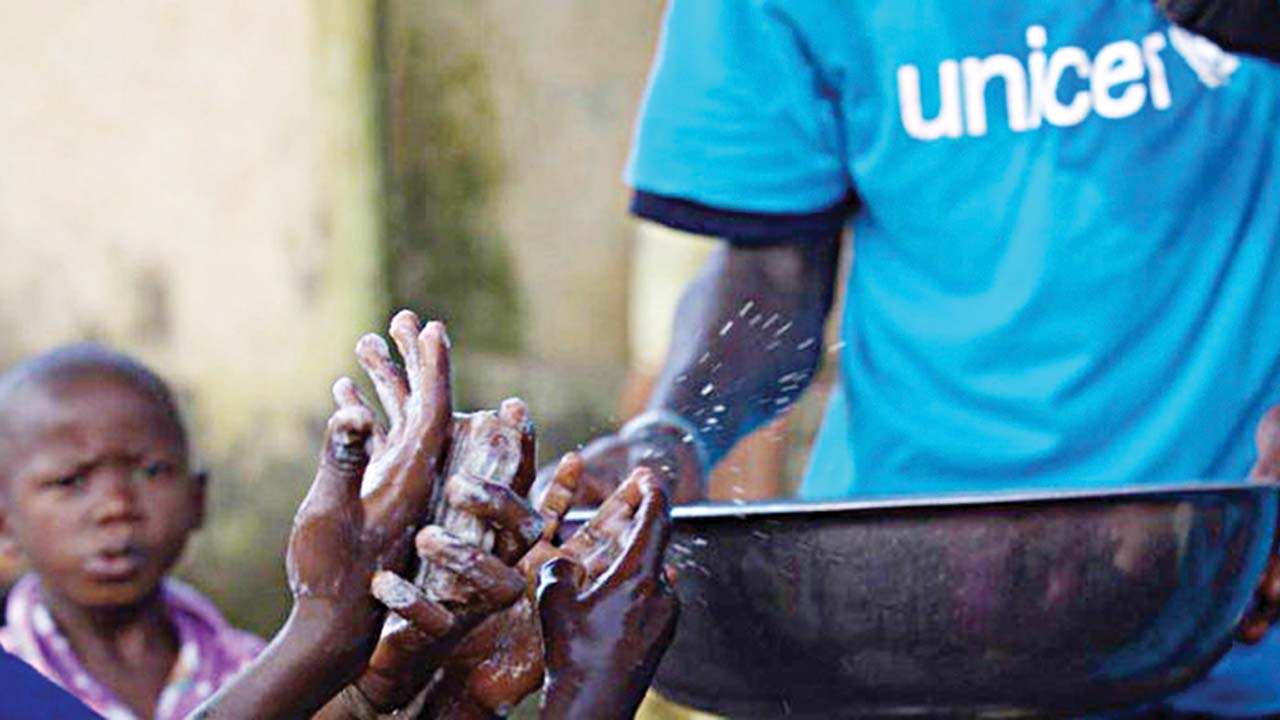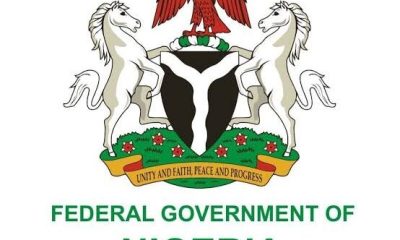News
Energy Reforms Advocates Expose Underhand Dealings in NNPCL’s Crude Oil Allocation: Matrix and GTT Under Scrutiny

The Energy Reforms Advocates, a formidable coalition of activists championing transparency and accountability within Nigeria’s oil and gas sector, has sounded the alarm over an alleged “unholy alliance” between the Nigerian National Petroleum Company Limited (NNPCL) and Matrix Energy Group. This purported partnership, according to the advocates, is specifically designed to deprive Nigeria of crucial tax revenues.
A damning report compiled by the group has unearthed irrefutable evidence linking Matrix Energy’s operations to Malta, a notorious European hub for clandestine blending and ship-to-ship transfers of sanctioned Russian oil and petroleum products.
Further investigation revealed that crude oil allocations by NNPCL to Matrix Energy Group are traded through an intermediary, Gulf Transport & Trading (GTT), registered in the United Arab Emirates (UAE). These allocations, totaling nearly 38% of Nigeria’s oil import quota, allegedly circumvent Nigeria’s tax system, resulting in billions of naira in lost revenue.
Matrix Energy, helmed by Abdulkabir Adisa Aliu, purportedly receives up to four crude oil cargoes per month from NNPCL. Instead of trading these allocations directly within Nigeria, where they would be subject to taxes and government oversight, the crude is rerouted through GTT. This UAE-based trading company allegedly serves as a front for Matrix’s offshore operations.
The scheme enables the oil to be sold at a premium of $3 per barrel, generating substantial profits outside Nigeria’s taxation system. This brazen exploitation not only undermines Nigeria’s economic interests but also raises serious concerns about corruption and money laundering.
An exhaustive examination of documents by Energy Reforms Advocates reveals that this clandestine arrangement yields an estimated $150 million (approximately N240 billion at the current exchange rate of N1,600 per dollar) in untaxed profits annually, denying Nigeria’s treasury much-needed revenue.
Given oil’s status as Nigeria’s primary revenue source, this flagrant exploitation has far-reaching consequences, impacting every sector of the country. The ripple effects of this malfeasance are felt across the economy, exacerbating financial hardships and undermining national development. These illicit gains, which rightfully belong to the Nigerian people, are instead unlawfully appropriated by Matrix Energy and its collaborators, dealing a devastating blow to the nation’s economic well-being.
Further investigation has uncovered an even more alarming aspect of this scheme. Poly Pro Trading, a Dubai-registered entity purportedly operating from OneJLT Towers 05.015 in the Dubai Free Trade Zone, appears to be a fictitious company lacking a physical office presence.
Energy Reforms Advocates categorize this location as a mere “business front,” cleverly designed to lend legitimacy to illicit oil transactions. This revelation raises profound concerns regarding the true nature and intentions of these offshore entities, particularly their role in siphoning Nigeria’s wealth through elaborate schemes.
Further in-depth investigations into Matrix Energy’s operations have uncovered the company’s clandestine involvement in the importation of substandard refined petrochemicals, which are subsequently distributed throughout Nigeria, perpetuating a hazardous cycle of environmental degradation and health risks. Documents obtained by Energy Reforms Advocates reveal that a substantial percentage of Matrix’s imports originate from Malta, a small European nation lacking significant oil refining capacity. However, Malta has gained notoriety for its role in illicitly refining Russian oil, which is then surreptitiously traded to unpatriotic representatives from various countries.
Alarmingly, over 35% of shipments from Malta contain petroleum products of questionable quality, including naphtha and gasoline blends, which fall short of global standards. These subpar products are then transshipped through various African ports, ultimately infiltrating Nigeria’s fuel distribution system.
Notably, diesel from Russia is notoriously off-spec, and diesels from Matrix filling stations have failed the ASTM D4294 test method, which provides a rapid and precise measurement of total sulfur in petroleum and petroleum products with minimal sample preparation. This situation has led to Matrix Energy peddling flammable diesel with toxic fumes to unsuspecting Nigerians, while reaping enormous profits.
The ecological and health consequences of this low-grade fuel are dire. Increased emissions from these substandard products lead to elevated pollution levels, frequent vehicle breakdowns, and a precipitous decline in public health. Experts warn that this illicit trade contributes significantly to Nigeria’s escalating mortality rate, as unsuspecting citizens are exposed to these harmful products. The sheer magnitude of this environmental and health crisis raises urgent concerns about the government’s regulatory oversight and the company’s blatant disregard for human life and the environment.
Energy Reforms Advocates contend that the Nigerian Midstream and Downstream Petroleum Regulatory Authority (NMDPRA) is culpably complicit in the illicit operations, willfully disregarding its statutory responsibility to ensure the quality of petroleum imports. The advocacy group asserts that Matrix Energy inaction is facilitated by its cozy relationship with high-ranking officials like, the Chief Executive Officer of the Nigerian Midstream and Downstream Petroleum Regulatory Authority (NMDPRA),Farouk Ahmed, and the Group Chief Executive Officer of the Nigerian National Petroleum Company Limited (NNPCL), Mele Kyari.
By failing to regulate fuel quality effectively, NMDPRA has created a regulatory vacuum that international commodity traders and Nigerian marketers have exploited with impunity, importing subpar fuels without consequence.
Regrettably, the presence of unpatriotic individuals, including Adisa Aliu, Farouk Ahmed, Mele Kyari, and their associates, in key decision-making positions has perpetuated the corruption plaguing Nigeria’s oil and gas sector. The disturbing revelations surrounding Matrix Energy and Gulf Transport & Trading’s (GTT) unscrupulous business practices not only cast doubt on the integrity of NNPCL’s leadership but also tarnish the reputation of Nigeria’s entire oil and gas industry.
As Africa’s largest oil producer, Nigeria’s economy is heavily reliant on crude exports and the accompanying revenues. However, these illicit dealings deprive the country of vital funds that could be invested in critical infrastructure, education, healthcare, and essential public services. The actions of these unpatriotic elements in power have far-reaching and devastating consequences, severely impacting various aspects of Nigeria’s development, including its economic, social, infrastructure, political, and humanitarian well-being.
With a great insight into the understanding of this situation as a Syndicate operation involving high profile corrupt individuals, the Energy Reforms Advocates are urgently appealing to relevant authorities, notably the Economic and Financial Crimes Commission (EFCC), to initiate a thorough investigation into these illicit activities and prosecute all individuals and organizations implicated.
The advocacy group is also demanding enhanced transparency in the Nigerian National Petroleum Company Limited’s (NNPCL) crude oil allocation processes and more stringent oversight of the nation’s oil export channels to prevent further exploitation.
In response to these disturbing findings, Energy Reforms Advocates are pressing the Nigerian government to conduct a comprehensive review of all crude oil export contracts, ensuring that companies like Matrix Energy and Gulf Transport & Trading (GTT) are held accountable for their actions.
The group is emphasizing the imperative need for sweeping reforms in the oil and gas sector, specifically targeting the pervasive exploitation by foreign entities in collusion with corrupt Nigerian officials.
“This constitutes a systematic plundering of Nigeria’s resources,” declared a spokesperson for Energy Reforms Advocates. “We can no longer tolerate the inaction that enables a select few privileged companies, in cahoots with corrupt officials, to siphon away our nation’s wealth. The time has come for decisive government intervention.”
As this saga unfolds, Energy Reforms Advocates urge Nigerians to remain vigilant, demanding the transformative change desperately needed in this critical sector. The advocacy group persists in its demands for transparency, accountability, and justice on behalf of Nigerians whose future is being jeopardized by these unscrupulous dealings.
News
BOWFT: Edo First Lady, Obaseki, Rallies Wives of Governors to Address Teenage Pregnancy and Abortion

The Edo State First Lady, Dr. (Mrs.) Betsy Obaseki, alongside her Oyo State counterpart, Mrs. Tamunominini Makinde, has called for concerted efforts to combat the rising prevalence of teenage pregnancy and abortion, which significantly hinder the social development of young girls in Nigeria.
This call to action was made during a seminar in Benin City, marking the fourth edition of the Betsy Obaseki Women Football Tournament (BOWFT), themed “Say No to Teenage Pregnancy and Abandonment.” Former First Ladies of Ekiti and Imo States, Erelu Bisi Adeleye-Fayemi and Nneoma Okorocha, respectively, also joined the initiative, advocating for improved conditions for the girl-child.
In her opening remarks, Mrs. Obaseki highlighted the progress made in the fight against social vices impacting young girls, noting a significant increase in the number of states adopting the Violence Against Persons (VAP) Law, which has grown from 12 to 35 states. She emphasized the importance of these laws in protecting the girl-child and holding violators accountable.
“We gather here every year to address social vices affecting the girl-child in the country. We are not just here to play football but to address these challenges,” she stated. “Teenage pregnancy and abortion have become serious issues in Nigeria, particularly in the South-South region, exposing children to various health risks, including Vesicovaginal Fistula (VVF). Poverty has made families vulnerable, leading to the exploitation of young children.”
Mrs. Obaseki also noted the effective measures implemented in Edo State over the past eight years to safeguard the girl-child, including the prosecution of offenders under the VAP Law.
Former First Ladies Adeleye-Fayemi and Okorocha, along with other attendees, expressed gratitude to Mrs. Obaseki for her impactful initiatives that have positively influenced many lives.
The keynote speaker, Ambassador Nkoyo Toyo, praised Mrs. Obaseki’s innovative approach, referring to it as a model for addressing teenage pregnancy and child motherhood in the South-South region. She underscored the importance of empowering girls to assert their rights and make informed decisions about their lives.
“The Obaseki model offers a comprehensive strategy to address the multifaceted challenges facing the girl-child in Nigeria,” Toyo remarked. “It provides a framework for keeping girls engaged and winning the battle against the issues they confront.”
The seminar served as a platform for collaboration and dialogue among stakeholders dedicated to enhancing the welfare and rights of young girls in Nigeria.
News
World Food Day: FAO Reports Over 3 Million Children Under-5 Stunted Due to Undernutrition in Nigeria

On the occasion of World Food Day, the Food and Agricultural Organization (FAO) of the United Nations has highlighted a concerning statistic: approximately three million children under the age of five in Nigeria are suffering from stunting, primarily due to undernutrition. This alarming figure reflects the broader issue of food insecurity affecting millions across the nation.
The FAO has attributed the current food crisis in Nigeria to several factors, including unsustainable agricultural practices, recent flooding, and ongoing insecurity, which have combined to exacerbate the food security situation. Currently, over 4.5 million people are identified as food insecure in Nigeria, prompting urgent calls for intervention to support local farmers and enhance agrifood practices.
This declaration was made by Daouda Doumbia, the Head of the FAO Office in Nigeria’s Northeast Sub Office, during a collaborative event with the Adamawa State government in Yola. Represented by Abdullahi Usman, the FAO Field Office Coordinator for Adamawa, Doumbia underscored the dire need for improved food access and agricultural sustainability in the region.
He stated, “The theme ‘Right to Food for a Better Life and a Better Future’ calls for increased access to food for everyone, emphasizing food as a basic human right.” Doumbia explained that the northeast region faces significant food insecurity challenges exacerbated by climate change, and he urged stakeholders to focus on building a more resilient agrifood ecosystem.
Recent flooding has had a devastating impact on agricultural production, affecting around 104,000 hectares of rainfed cropland and 6,570 hectares of irrigated land. This has resulted in an estimated food loss of 166,731 metric tonnes, potentially depriving approximately 1.6 million people of access to food for six months. The flooding has significantly impacted states like Borno and Adamawa, which are among the worst affected.
Doumbia expressed alarm over the stunting issue, saying, “It is alarming that approximately 3 million children under five in Nigeria are stunted, reflecting the severity of undernutrition.” He further highlighted the problem of malnutrition manifesting in various forms, including micronutrient deficiencies and rising obesity rates among adults, indicating a failure of food systems to provide essential nutrients.
The FAO representative stressed the importance of sustainable agricultural practices, noting that Nigeria is home to numerous local plant and animal species that could enhance nutrition and resilience within its agrifood systems. He warned, “Unsustainable agricultural practices threaten our biodiversity, which is vital for ensuring food security.”
The FAO is committed to supporting affected communities by distributing essential resources. Doumbia revealed plans to support 49,000 households, approximately 343,000 individuals, across the BAY states (Borno, Adamawa, Yobe) with improved seeds, NPK fertilizer, and water pumps during the upcoming 2024-2025 dry season. This initiative aims to restore livelihoods and boost food production in vulnerable communities.
Doumbia emphasized the need for a collaborative approach involving the government, private sector, civil society, and local communities to address food insecurity comprehensively. He noted the critical role of youth in agricultural innovation and sustainable practices, urging their engagement in advocating for healthy diets and resilient agrifood systems.
Moreover, Doumbia highlighted the importance of women in agriculture, stating that they should have a voice in decision-making processes. He remarked on the FAO’s livestock restocking programs targeting women-headed households, aimed at improving food availability in communities.
As the event progressed, Governor Ahmadu Umaru Fintiri of Adamawa State, represented by the state commissioner for Agriculture, David Jatau, called for strategies to enhance crop yields in the face of climate change challenges. Fintiri pointed out that globally, approximately 2.8 billion people struggle to afford a healthy diet, largely due to limited access to modern farming tools among smallholder farmers.
Commissioner Bello Diram, overseeing Reconstruction, Rehabilitation, Reintegration, and Human Services in Adamawa, spoke about the government’s initiatives to support local farmers. He highlighted the provision of access to farming equipment, quality seeds, and fertilizers as essential measures to bolster food production, particularly following the flooding that has affected over 50,000 residents.
The FAO and local officials reiterated the urgent need for effective interventions to tackle food insecurity, which has resulted in significant suffering for millions. As they commemorate World Food Day, the call to action is clear: there is a need for sustained efforts to ensure that every individual has access to sufficient, safe, and nutritious food, thereby fostering a healthier future for Nigeria.
News
Global Handwashing Day: UNICEF and BERWASSA Provide Hygiene Kits to Benue IDP Camp

In observance of the 2024 Global Handwashing Day, the United Nations Children’s Fund (UNICEF) and the Benue State government, through the Benue State Rural Water Supply and Sanitation Agency (BERWASSA), have taken a significant step to support vulnerable communities by donating hygiene kits to 100 households at the Ichwa Internally Displaced Persons (IDP) camp in Makurdi. This initiative underscores the ongoing efforts to improve hygiene practices among the displaced population.
Additionally, the Benue State government announced a release of ₦700 million aimed at enhancing Water Sanitation and Hygiene (WASH) facilities across the state. The Commissioner for Water Resources, Environment, and Climate Change, Mr. Odoh Ugwu, made this announcement during the Global Handwashing Day celebration at the Ichwa IDP Camp.
Mr. Ugwu emphasized that this initiative aligns with the global target of ensuring access to hand hygiene for all by 2030. He highlighted the pressing need for improved hygiene practices in Nigeria, noting that many residents, particularly in Benue State, lack access to soap and running water. Current data reveals that only five percent of households in the state have a designated area for handwashing with soap and running water.
In his speech, Mr. Ugwu urged community stakeholders, including traditional rulers, to enhance efforts in increasing access to safe water and sanitation. This initiative aims to mitigate disease transmission and foster a safer living environment. He expressed gratitude to Governor Alia for his commitment to the WASH sector and recognized UNICEF, BERWASSA, the International Organization for Migration (IOM), and the State Emergency Management Agency for their collaboration in organizing the event.
Mr. Tony Mkpen, General Manager of BERWASSA, explained that the decision to hold the event at the IDP camp was prompted by the poor living conditions and the necessity for residents to adopt better hygiene practices. He pointed out that the day serves as a reminder of the significance of handwashing, especially in environments where sanitary conditions are lacking.
“We celebrated Global Handwashing Day with the IDPs to promote hygienic practices, which are essential in reducing illness,” Mkpen stated. He further remarked on the importance of the campaign, noting that BERWASSA has been actively engaged in promoting water sanitation and hygiene practices in local communities, contributing to the state achieving the status of 11 local governments being Open Defecation Free (ODF).
Mkpen urged the people of Benue to embrace toilet ownership and proper handwashing practices to combat open defecation, which contributes to numerous health issues. “Open defecation contaminates water sources, which leads to health problems. We need to cultivate the habit of using toilets and washing hands afterward,” he stressed.
The Executive Chairman of the State Universal Basic Education (SUBEB), Dr. Grace Adagba, participated in the event by donating cartons of soap to the IDPs. She, along with Scholastica Lan, PRO of the Benue NGO Network (BENGONET), encouraged community members to prioritize handwashing to prevent the spread of communicable diseases.
The camp manager, Jennifer Vangeryina, expressed her gratitude to BERWASSA and UNICEF for their support and for celebrating Global Handwashing Day with the IDPs. The event included a handwashing demonstration by the Commissioner, along with a tap production competition for children from local schools. Participants, including students Azahan Godwin and Jato Cynthia, received prizes such as school bags and water bottles, acknowledging their involvement and reinforcing the importance of hygiene practices.
This initiative highlights the commitment of both UNICEF and the Benue State government to improve the lives of IDPs while fostering a culture of hygiene and health in the region.
-

 Entertainment24 hours ago
Entertainment24 hours agoDavido Declares ‘Timeless’ His Best Album
-

 Sports24 hours ago
Sports24 hours agoMessi Matches Ronaldo’s Record with Hat-Trick Against Bolivia
-

 Entertainment24 hours ago
Entertainment24 hours ago‘Adire’ Secures Four Nominations at the Best of Nollywood Awards
-

 Sports24 hours ago
Sports24 hours agoCAF Confirms Morocco as Host for 2024 Women’s Champions League
-

 Entertainment24 hours ago
Entertainment24 hours agoVan Vicker Celebrates 21st Wedding Anniversary: “I Have No Regrets”
-

 Politics6 hours ago
Politics6 hours agoPresidency Assures: No Leadership Void as Tinubu, Shettima Remain Engaged Abroad
-

 Business6 hours ago
Business6 hours agoFuel Price Hike: FG Maintains Routine Engagement with Organised Labour
-

 Politics6 hours ago
Politics6 hours ago“Give Tinubu 40 Years, He Won’t Go Anywhere” – Adebayo








